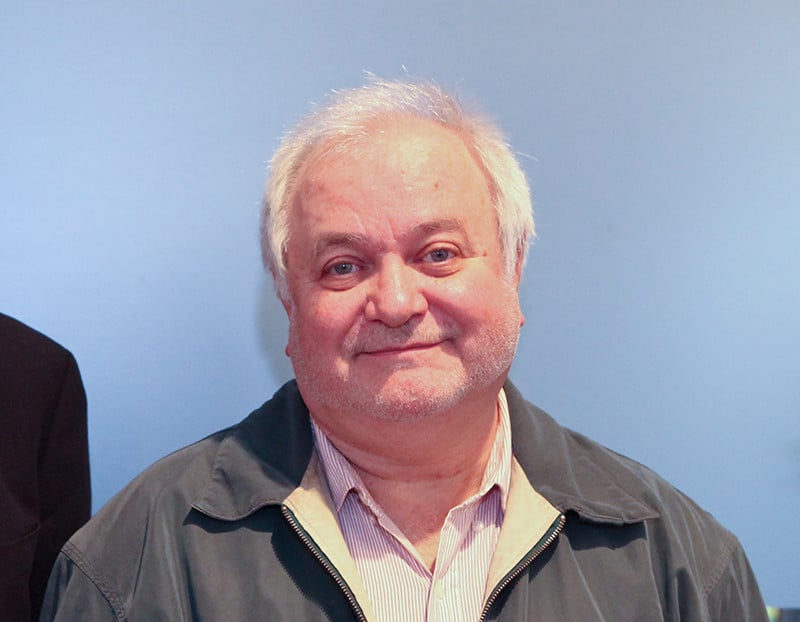Galleries
Ab Ex Scholar Hired by Knoedler Gallery Admits He Can’t Tell Two Rothko Paintings Apart
Stephen Polcari testified at the Knoedler trial.

Stephen Polcari testified at the Knoedler trial.

Cait Munro

“Haven’t you said in the past that all Rothkos look alike?,” an attorney asked art historian Stephen Polcari about the work of painter Mark Rothko, to muffled chuckles from the audience in the courtroom Tuesday afternoon. “Well yes,” Polcari replied. “He’s famous for having a signature style.”
Polcari was testifying in the United States District Court in Manhattan in the fraud trial involving Knoedler & Co. The attorney was for the plaintiffs in the case, Domenico De Sole and his wife Eleanore, who have sued Knoedler & Company and its former director and president Ann Freedman for selling them a fake work of art purportedly by Mark Rothko.
“So, as for that signature style,” the attorney continued, “from one to another, you can’t tell?” Polcari nodded his head.
Polcari, an Abstract Expressionist scholar who claimed during his testimony to be “strong on Rothko,” looked a bit sheepish. And beyond admitting that in many cases he can’t tell two Rothko paintings apart, or which way to hang them, he maintained that this is part of Rothko’s appeal.
Polcari was on the stand because he was paid $3,000 by Knoedler & Co. to produce ten research essays exploring the provenance and historical significance of the works acquired by the gallery from the Spanish dealer Glafira Rosales and later proven to be fake. He holds a PhD in art history from the University of California, has taught at several major universities, and published the acclaimed 1991 book Abstract Expressionism and the Modern Experience.
“Welcome to the world of art history,” Polcari quipped when the attorney for the plaintiffs pointed out that the fee he was paid by Knoedler for his work was ultimately a sum of just $300 per essay. Polcari claims he was not paid any additional money when the works sold, but did reveal that Freedman is footing the bill for his legal counsel. Polcari, who was affiliated with the gallery from the late 1990s through 2008, wasn’t specifically told what would ultimately come of the reports he produced for them.
Polcari’s reports, which were later used to help prove the legitimacy of the works to the De Soles and other buyers, not only assumed that the works he was writing about were authentic (based, essentially, on their presence at the well-regarded blue-chip gallery), but also praised their beauty, and suggested that they may have originally been purchased directly from the artists by the late Ab Ex artist Alfonso Ossorio, who assembled a collection of work by his contemporaries. This was later proven inaccurate in a report by the International Foundation of Art Research (IFAR), and also through Polcari’s own subsequent research.
Polcari admitted during his testimony Tuesday that he initially got the idea regarding their history with Ossorio from something Freedman said to him.
Strangely, even following his own conclusions regarding Ossorio, Polcari was still quick to call the IFAR report “amateurish” and “irrelevant” based on their use of information from Ossorio’s partner, Ted Dragon, who rightfully claimed to never have seen the works in their collection or elsewhere. He maintains that his reports were correct based on the fact that he was not asked to opine on the works’ authenticity, per se, but rather their importance in the context of the artists’ bodies of work.
“They were right,” Polcari concedes. “But you can be right for the wrong reasons.”
“You do understand that all of the works were fake?,” the plaintiffs’ attorney asked, to which Polcari responded that yes, he did acknowledge their illegitimacy.
“So you were wrong—every single time?”
“Well they were very good works,” Polcari responded, clearly a bit incensed. “They just happened to be done by other artists.”
Polcari, of course, hasn’t been the only art expert to take the stand. Art historian David Anfam, who authored the only Rothko catalogue raisonné in existence, finished his testimony from yesterday. He displayed the same outrage that he did yesterday over the suggestion by Freedman that he was going to include a Rothko work on paper owned by Knoedler in a catalog of Rothko’s works on paper. No such catalog, he said, was ever in the works.
Anfam maintained that while he never told Freedman he believed the works were “inauthentic,” he also never explicitly told her they were authentic. “I was never asked,” he repeated several times throughout his testimony.
Testimony continues on Wednesday.